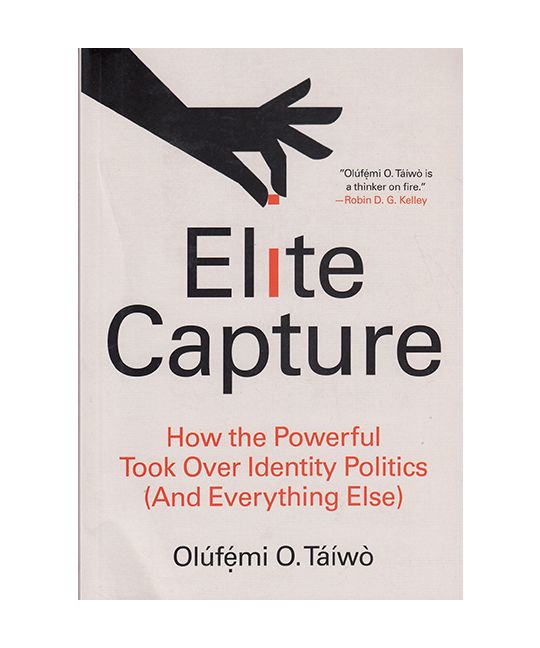possm reviewed Elite Capture by Olúfẹ́mi O. Táíwò
One of these article-turned-into-book books
4 stars
This is a book based on an article, or rather it is an article inflated to the size of a book. I was able to tell after 30 pages, and got confirmed afterwards. This seems like a common practice in the US publishing world: an article-sized essay gets inflated through the addition of an introduction where terms are defined, and the insertion of examples. The argumentative structure stays the same, only now instead of occasionally nodding towards an example to support an argument, every argument gets one to several examples that are stretched to wikipedia length. This practice isn't necessarily a bad thing. In the case of this book, some of the examples given are things I didn't know anything about (the decolonial struggles of Guinea-Bissau and Cabo Verde), so this is a nice opportunity to learn something new. But all in all, this practice makes good essays longer and worse. If it is often hard to tell what point Táíwò is trying to make when he goes into biographical details of some historic figure, that might be because these details aren't conducive to the point at all - they are just upping the word count. After finishing the book just now, I read the article that originated it (in the Boston Review, no paywall). The article makes several points that confused me in the book way clearer. In particular, the article cites Frazier's "Black Bourgeoisie" to generalize the point it makes about, well, elite capture. The book, on the other hand, gives us Frazier's backstory, the story of his parents, his intellectual legacy, etc. All this achieves (besides being interesting in the way a wikipedia article is) is to obscure the argument that Táíwò actually wants to make. So this is my conclusion: read the article. The book contains the same points, made with more words and less clarity. The points themselves are very good! The concept of elite capture is useful for critiquing nonconstructive uses of identity politics. It's a shame that the publishing industry doesn't incentivize conciseness.

